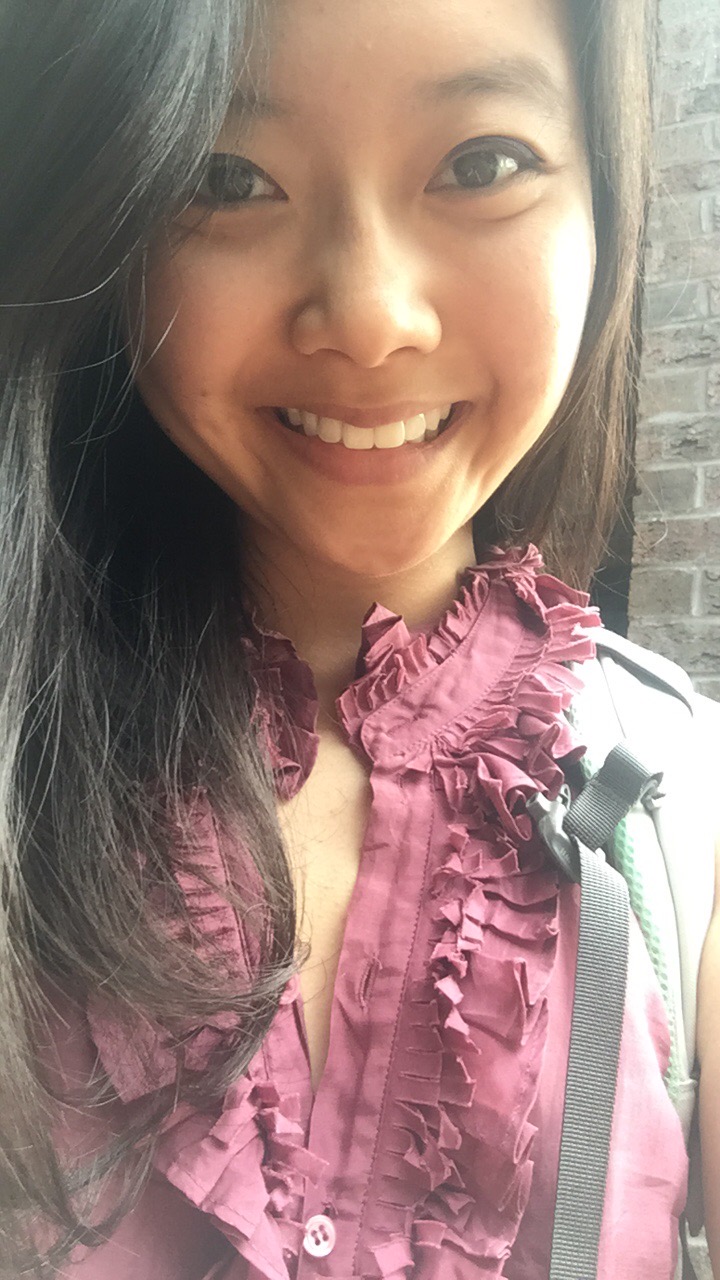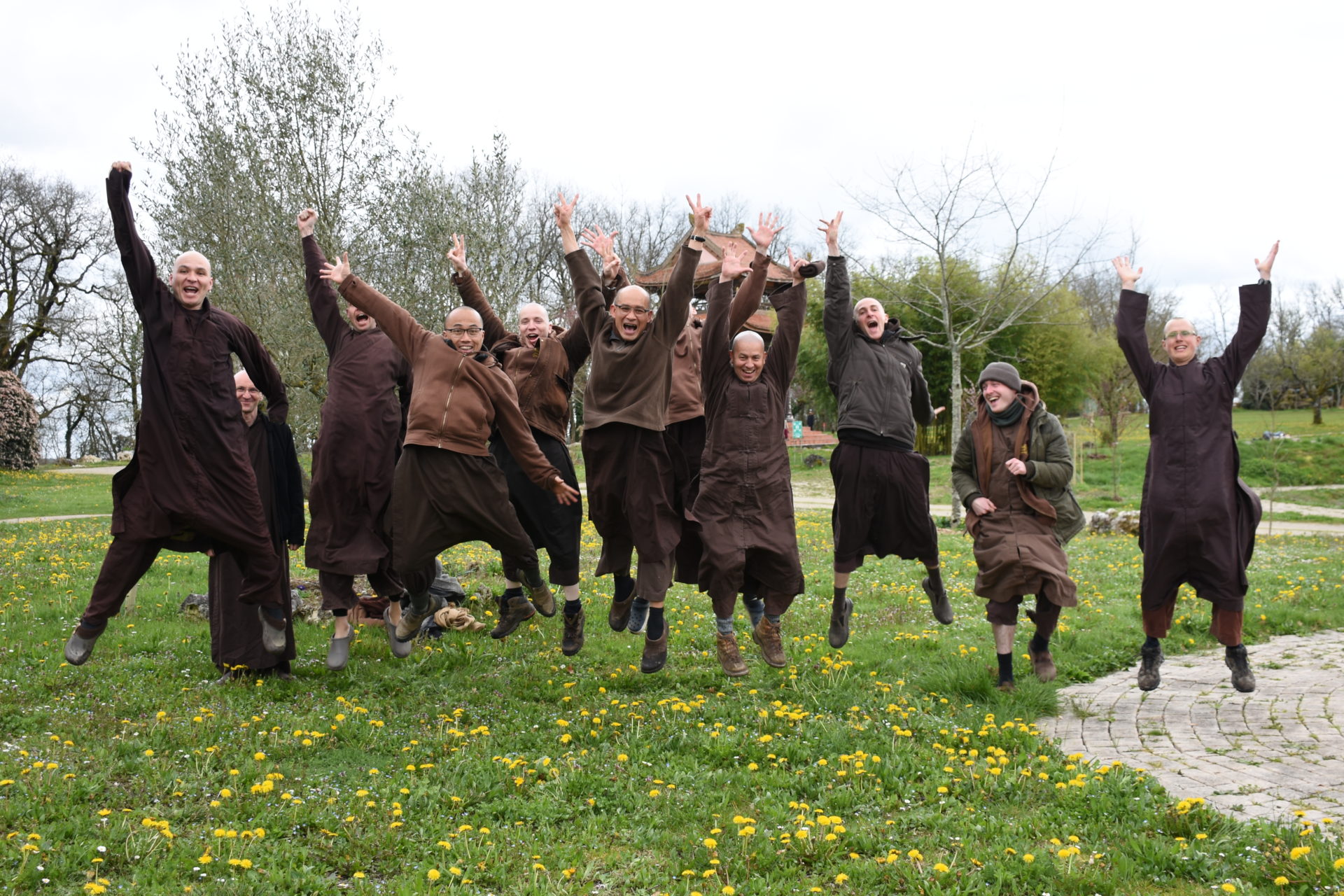By Christine Huang

Dear Thay,
I remember the first time I met you. It was the summer of 2014, and I had just finished my junior year of college. For three months, I had been lost in the caverns of anxiety, panic, and despair; waking in the mornings, I often feared I could not endure the excruciating length of a single day.
By Christine Huang

Dear Thay,
I remember the first time I met you. It was the summer of 2014, and I had just finished my junior year of college. For three months, I had been lost in the caverns of anxiety, panic, and despair; waking in the mornings, I often feared I could not endure the excruciating length of a single day.
All storms arise from the convergence of many conditions, and the ones that seize our minds are no different. The storm of that year was born of many things: of an episode of psychosis triggered by a seemingly innocuous brush with weed; of the terrifying suspicion (descending upon me like a bolt of lightning) that I was queer; of the unthinkable knowledge that I wanted to leave my partner, though I could not bear to imagine life without him.
Out of ignorance and desperation, I waged war upon my mind. I did not have the space within me to contain all the contradictions of my humanity, and I wanted only to exorcise what I could not hold. Nothing—not even the patient support of my partner, my friends, and my family—could extinguish the fire of distress in me. Eventually, my gratitude to them putrefied into shame.
When I arrived at Deer Park Monastery on a feverish July afternoon, the monastery was quiet. The sisters were at lunch, it seemed. Standing under the generous shade of an oak tree, I listened to the whisper of the winds and the whir of hummingbird wings. When eventually the door to the registration office swung open, I looked up to see your words on the wall.
Breathe, my dear.
Your words went straight through me, as if there was not so much as a membrane between us. Tears sprang to my eyes. This, I realized for the first time, was healing.
Buried as I was in my pain, I saw—during the two weeks I spent there—that peace, clarity, and stability were possible, and that the blue sky—stretching its arms in a vast embrace—was there if only I could be still enough to see it.
One morning, I was walking along the dusty desert trails with a sister, our faces parched in the heat. Suddenly, she stopped. “I want you to meet my friend,” she said, lifting her hat. With bated breath, I waited, wondering whom she meant. Moments later, a breeze came dancing over our cheeks. We closed our eyes to savor the sweet, precious coolness, then giggled like children.
But though I tasted deep, pure joy that summer at Deer Park, I continued to suffer for I did not have the strength to practice on my own, and see you and the Sangha within me.
A year after I graduated from college, I left my partner. I broke his heart and my own, and went to Plum Village, where I was a drop of water in the Dharma ocean. Everywhere I turned, I felt your presence, but I did not expect to encounter you in your physical form. Then one afternoon, sitting in the back of the meditation hall before a Dharma talk, I saw you. Though you did not speak, your presence shook me; when you looked me in the eye, my heart expanded like a stream widening into the sea, and I sobbed without knowing why.
The sisters of New Hamlet taught me to how to find joy while washing a plate, mopping the floor, and tasting a cherry, freshly picked. They saw beautiful things in me where I could see only ugliness, and I loved them with all the affection and attachment of a child.
But upon returning home, the loneliness I felt crushed me. Without the Sangha, I felt as if I could not stand on my own two feet. For though I’d bathed in the Dharma, I still did not know how to take steps on the path.
In the year that followed, I went to graduate school, where my anxiety and despair gathered force the way a tornado gathers momentum, pulling into its vicious spiral all that lay in its path. My days were marked by a constant fear of the dread, hollowness, panic, and suicidal thoughts that crested, wave-like, without warning.
In the wake of that darkness, I finally vowed to stop running.
In the silence and solitude of my home, all the demons I’d unwittingly fed flooded into the living room of my consciousness. Mornings and nights, I tried to meditate. But each time I closed my eyes, I felt as if I were disappearing, defenseless, into the monstrous gulf of my thoughts.
Slowly, I learned how to be in my body again and feel what it was like to have feet, hands, and eyes. At the height of my anxiety, I had felt completely disconnected from myself. Now, I asked myself to come home to the profound practice of following my in-breath and out-breath.
Seeds planted in me long ago gradually sprouted. Practicing walking meditation in the woods, I recognized the way the trees, the earth, and the sun nourished me. When fear and despair threatened to swallow me, I asked myself to take ten steps in mindfulness from this tree to the next. When I lost myself to the quicksand of my thoughts, the sharp, ginsenged perfume of the forest and the rummaging of chipmunks in the bushes brought me back to myself. I finally understood what one sister had meant when she told me that nature was my Sangha too.
One morning, while I sat at the breakfast table at home, an insight came to me like a tap on the shoulder, a raindrop on my nose. My suffering may be real, but my happiness is also real. And then another like the voice of the Buddha appeared: My thoughts are not me. The heaviness that had weighed on my body for months grew wings and took off.
Understanding, which is love, was the antidote to fear. On days when my suffering was too heavy to carry, I spoke to myself with the humility of a mother embracing the child she had abandoned: Please help me understand your suffering so I can better be there for you. Please tell me how to be a better soulmate to you.
That year, I touched you and the Dharma within me.
I discovered that practice means choosing the present moment again and again, strong as the tides of our mind may be. I discovered that I am made of everything, wholesome and unwholesome, and the landscape of my mind is mine to tend. I recognized that I carry in each of my cells the teachers and friends I’ve encountered on the path. I discovered that happiness is made of suffering just as a lotus is made of mud. When I give thanks to the joy, stability, and health I’ve cultivated, I give equal thanks to the fear, anguish, and loneliness that I have tasted.
One night two years ago, I went to practice with my Sangha. Afterward, I stepped out into the February frost and smelled the fresh fragrance of pine. Looking up, I saw a crescent moon and a sprinkling of stars, arranged as if by the hand of an artist. My breath caught the cold air. I stood, knowing the moment contained everything: you, my ancestors, the sun, the rain, and the universe, for they were all made of each other.
I was filled with wonder at the vastness above, around, and within me. It was as if I had never seen the night sky.

Christine Huang is a writer and teacher based in San Francisco. She has practiced with Sanghas in Connecticut, California, New York, and Taiwan, and considers the Dharma one of the greatest gifts of her life.

